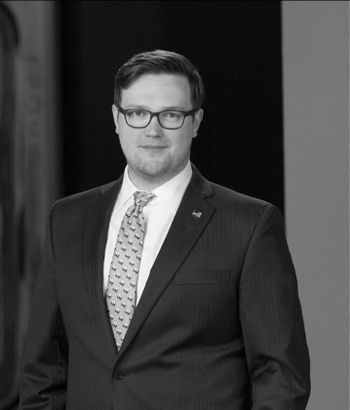Massive skilled labor shortage sparks nationwide refocus on technical education
Awareness of the nation's massive labor shortage is increasing.
In response, a nationwide renewal in technical education is taking place.
Awareness of the nation’s massive labor shortage problem is increasing.
The problem is encapsulated by the latest news out of Kentucky, where one carpenter’s skills are in high demand.
Charles Breedlove’s job “takes him everywhere ... even [to] the water,” where he is building a boat deck in the small town of Paducah, according to Kentucky news station WPSD Local 6.
He says that demand for his services is growing, but he’s among the few left who knows how to do the job.
As reported by Industrial Skilled Trades, “[f]ewer workers are entering the trades, especially among the younger population.”
[RELATED: Universities are lowering expectations for pandemic-era students]
In November 2021, for example, 10,562 skilled jobs were available, but only 6,697 individuals were hired to fill those jobs.
In response, a nationwide renewal in technical education is taking place.
In Mississippi, The Skills Foundation, a non-profit, is sponsoring a campaign called “Skills That Pay.”
The campaign aims to increase awareness of high-paying skilled jobs in energy, manufacturing, and healthcare, as previously reported.
Clifton Carroll, Executive Director of External Affairs at The Skills Foundation, previously told Campus Reform that the organization’s goal is to “educate Mississippi students, parents, teachers, and other stakeholders on the many high-quality, good-paying careers in key industry sectors that are obtainable without a four-year degree.”
Florida officials are also pushing for further emphasis on skilled labor and trade education.
A recent bipartisan bill seeks to expand career-themed courses in the state.
As Campus Reform reported earlier this month: HB 455, referred to the Choice and Innovation Subcommittee on Feb. 1, could show students alternatives to a four-year degree by introducing them to vocational education at an earlier age.
The United States Congress is also stepping in.
[RELATED: KFC to offer 100% tuition coverage for employees, following trend among businesses]
Late last month, The Committee on Higher Education and The Workforce (Committee), chaired by the conservative Congresswoman from North Carolina, Dr. Virginia Foxx, sponsored a bill to allow Pell Grant funds to be spent on workforce programs.
House Republican Conference Chair Elise Stefanik of New York introduced the bill.
“I proudly helped introduce the PELL Act to expand the use of the Pell Grant to skills-based programs,” she tweeted.
As we face a historic worker shortage, I proudly helped introduce the PELL Act to expand the use of the Pell Grant to skills-based programs.
Read in @SunCmtyNewshttps://t.co/UBMSeECSAF— Elise Stefanik (@EliseStefanik) January 27, 2023
Chairwoman Dr. Virginia Foxx, who holds an Ed.D. in Curriculum and Teaching/Higher Education from the University of North Carolina-Greensboro, told Campus Reform, that increasing funding to skills training can make the nation’s workforce stronger:
With a widening skills gap and labor shortages, it is more important than ever to ensure workers have the skills to be successful. I believe building the bridge to connect job creators with a stronger workforce starts with reauthorizing the Workforce Innovation and Opportunity Act (WIOA)—which is among my top priorities as Chairwoman of the Education and the Workforce Committee. By dedicating more funds towards upskilling and by putting professional education on an equal footing with baccalaureate degree programs, we can prepare a stronger, more diverse workforce for the 21st century economy.
Dr. Foxx is hopeful that workforce training will be a bipartisan issue, noting that “all Members of Congress are hearing about the needs of employees and employers in their districts.”
”Workforce development programs are not partisan. In 2014, I led the passage of WIOA with a Republican majority in the House, Democrat majority in the Senate, and President Obama in the White House. I am confident that we can come to an agreement that is in the best interest of America’s workforce.”
Dr. Foxx also believes that solving the labor shortage is about putting “skills-based and baccalaureate programs on an equal footing.”
”We are moving towards a skills-based economy in which individuals’ skills and competencies are what matter, not where or how they obtained them. I believe this shift will require colleges and universities to reorient their programs towards the skillsets employers are looking for – and that will be a good thing for America’s students,” said Dr. Foxx.
The Committee continues to sponsor workforce programs and advance skill-based education, often alerting constituents of workforce training options on Twitter.
February is #CTEMonth!
Interested in a skills-based education that helps prepare you for in-demand careers and a lifetime of success? Then consider a career & technical education! pic.twitter.com/wrBmv4SsHp— House Committee on Education & the Workforce (@EdWorkforceCmte) February 22, 2023
Locals in Paducah would appreciate the push to advance skills training over four-year degrees.
As Brad Berry, vice president of a Kentucky chapter of the United Steelworkers Union put it, “It’s different work, you know.”
“Not everyone can work at the mall. Not everyone can have a desk job,” Berry told WPSD Local 6.
Campus Reform continues to track developments in the push for skills training and the labor market shortage.
Campus Reform reached out to Sefanik, Breedlove, and Berry for comment but did not receive response in time for publication. This story will be updated accordingly.

